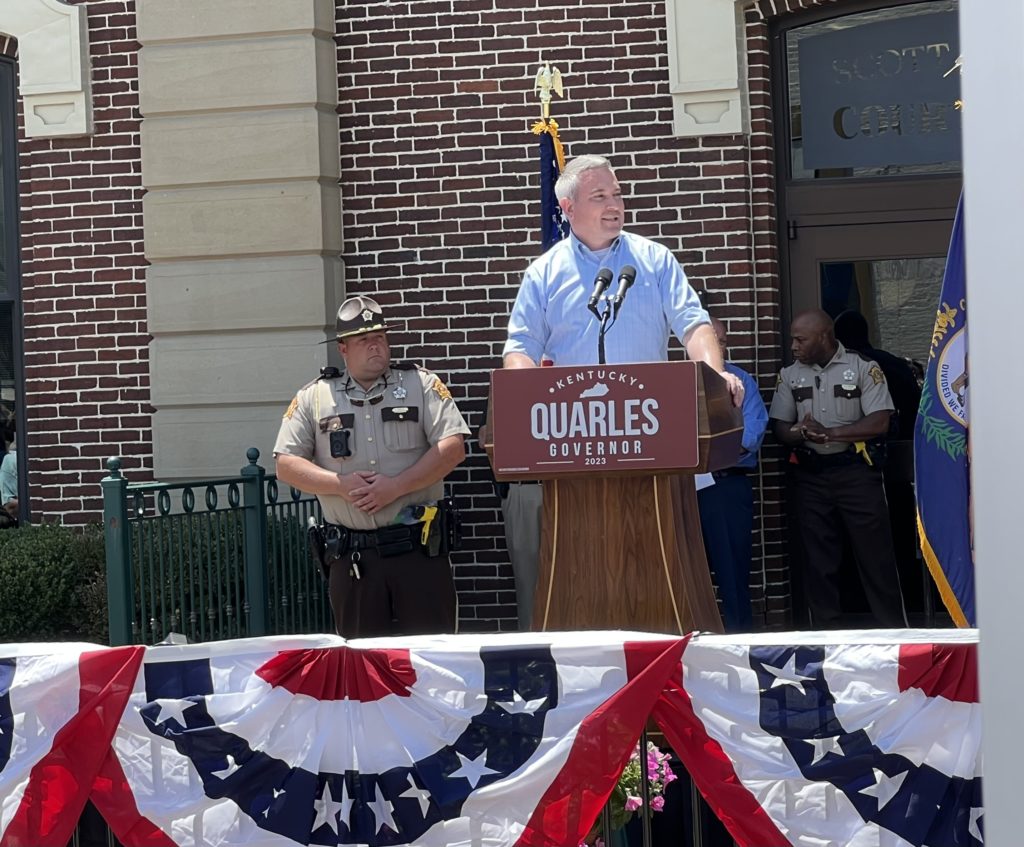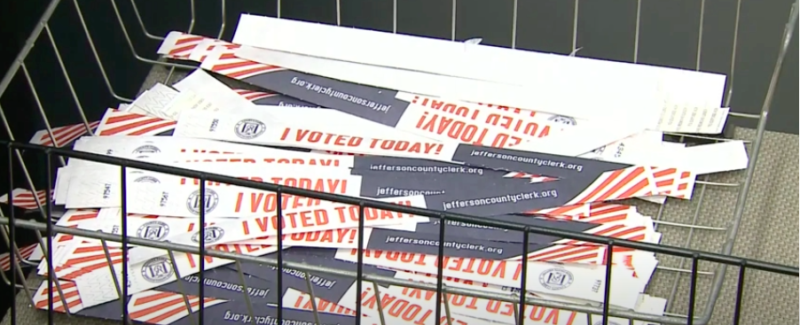With gas prices hitting record highs around the country all are feeling the pain at the pump, but in Kentucky, every pump carries an inspection sticker bearing the name of one of the GOP candidates for governor.
Do not remove, the sticker reads in all capital letters next to the inspection year, a state outline, and the name Ryan F. Quarles, Commissioner.
Quarles is the term-limited Commissioner of the Kentucky Department of Agriculture who is running in the Republican primary for governor against an already crowded field. He is a top-tier candidate, who holds more degrees than a thermometer, as Tony Soprano might say. But, he also will seek to undercut Gov. Andy Beshear by nationalizing the issues in the race by talking about climbing gas prices and rising inflation. In doing so, he may have to explain that he too is not in charge of the price at the pump.
The Kentucky Department of Agriculture’s Department of Weights and Measures plays a role in ensuring equity in the marketplace, including gasoline. Inspectors for the KDA, of which Quarles is the Commissioner, test to make sure the price of fuel is computed correctly. They also ensure everyone who sells fuel in the Commonwealth is registered for the motor fuel quality program, which tests gasoline, diesel, and bio-diesel to ensure the fuel meets national standards and state law.
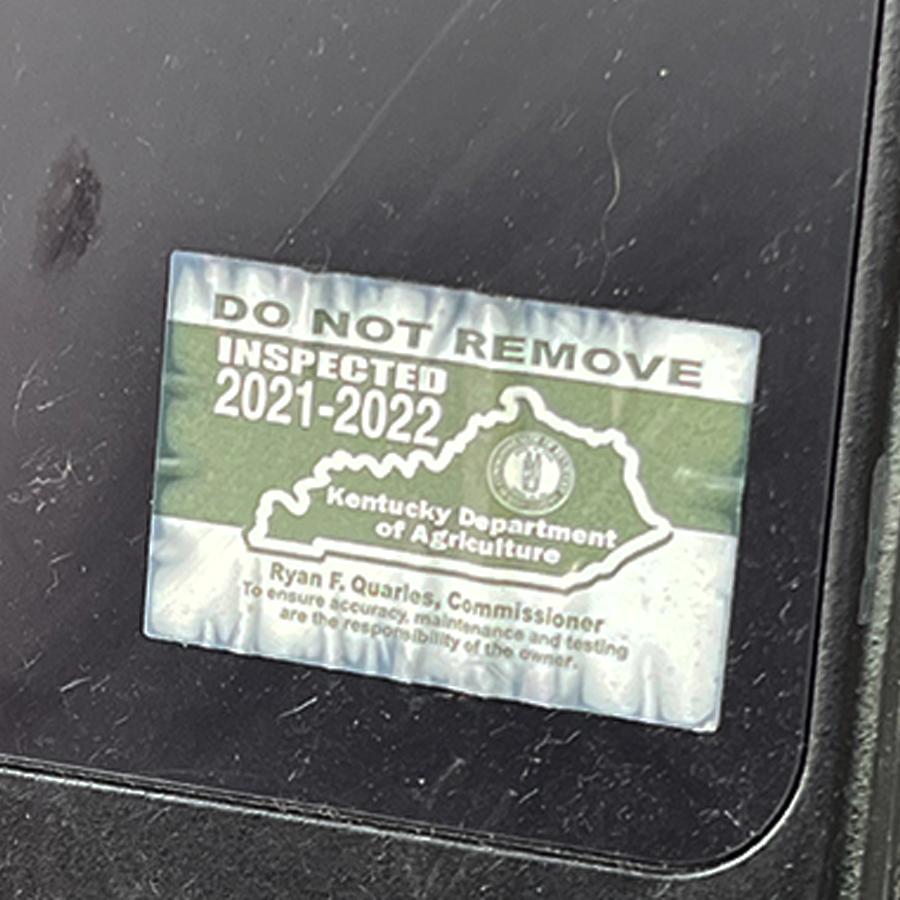
Being associated with tabulating the cost of fuel could pose a tricky avenue for Quarles to navigate if he is going to try to nationalize the issues in the race for governor. In telling the story that Beshear is somehow to blame for the cost of gas, then Quarles could equally be tagged with the price, after all his department ensures the cost of fuel is computed correctly.
Both of the scenarios are untrue, and to unravel the current dilemma takes an understanding of the supply chain of oil. The United States produces oil, but we also import a lot of it and export it too. As the Biden Administration is finding out ramping up production is not as simple as snapping your fingers.
The increase in the price at the pump is due to several factors, including the war in Ukraine. Russia is a major oil-producing nation, and the United States has banned the import of Russian oil. Russia is selling less oil since the beginning of the war as the European Union has also imposed sanctions. The decrease in global supply has led to a spike in the price of crude oil. More expensive raw materials equal more expensive refined products.
Oil companies in the United States are reticent to increase their production as the Biden Administration is asking them to, because they fear prices could fall if they increase production too much, according to the New York Times. The price of fuel has also increased as the industry struggled with the gap in demand before and after the pandemic. Production has not met demand.
All of the disruptions in the oil space comes as there is a continued push towards renewable energy and electric cars.
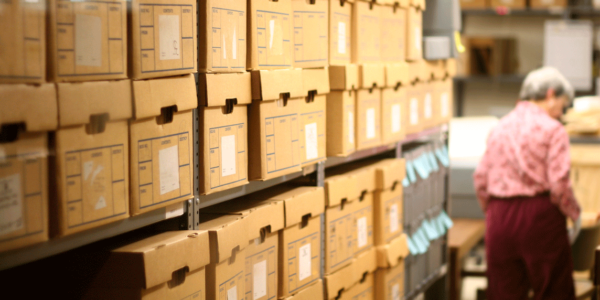
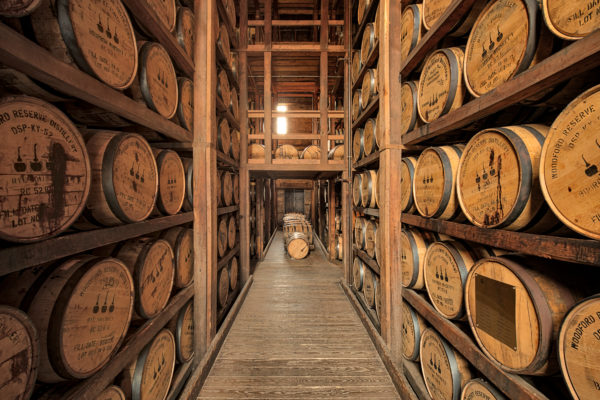
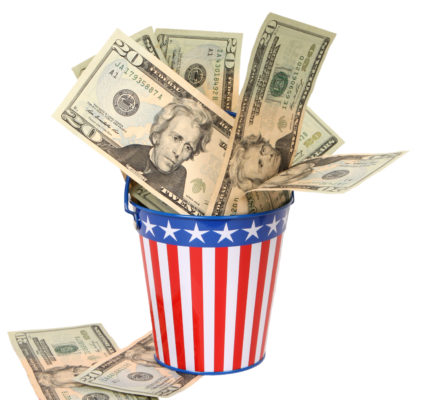
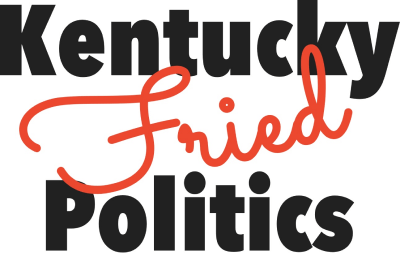
 Login
Login  Must include at least 8 charaters
Must include at least 8 charaters